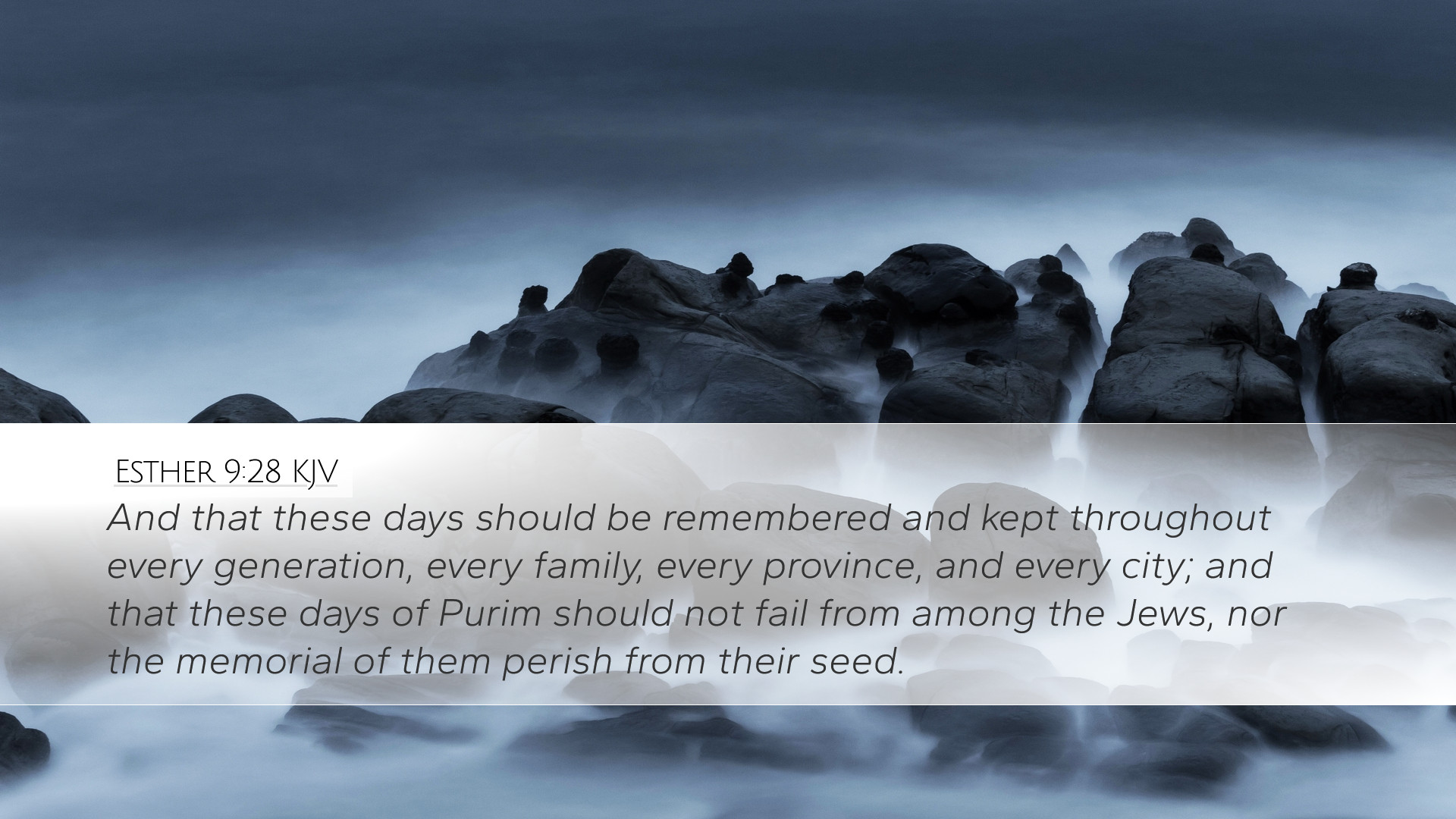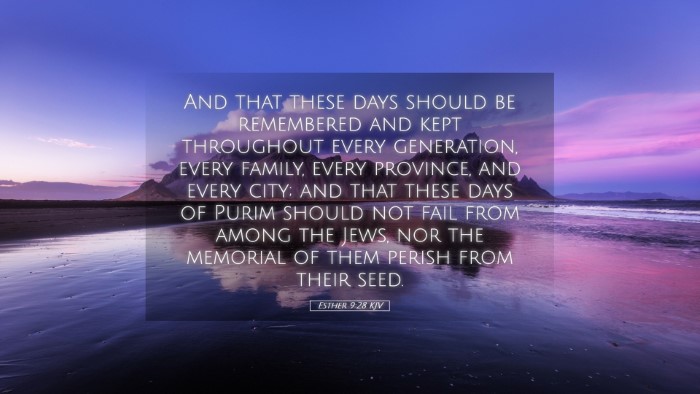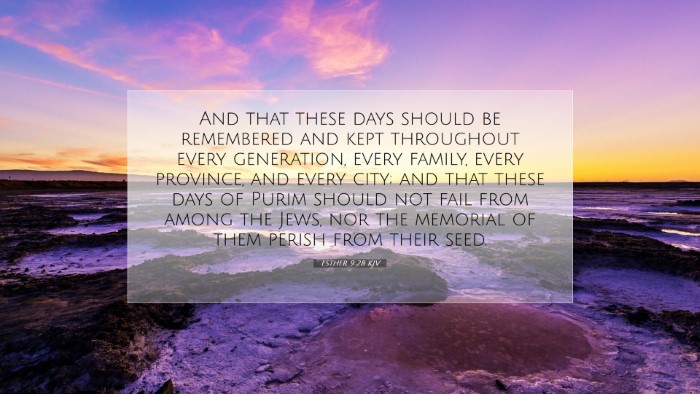Commentary on Esther 9:28
Esther 9:28 states: "And that these days should be remembered and kept throughout every generation, every family, every province, and every city; and that these days of Purim should not fail from among the Jews, nor the memorial of them perish from their seed."
Introduction
The passage from Esther marks the institution of the festival of Purim, a significant celebration in Jewish history that honors the deliverance of the Jewish people from impending destruction as narrated in the Book of Esther. This verse encapsulates the essence of remembrance and the imperative to maintain traditions across generations.
Thematic Elements
-
Remembrance and Commemoration:
The command to remember these days reveals an essential theme of memory in the Judeo-Christian tradition. Albert Barnes notes that memory serves as a powerful tool for preserving historical events, reinforcing identity, and invoking communal unity. This remembrance is not merely an act of nostalgia but a vital part of faith that connects the current and future generations to God’s past interventions.
-
Generational Responsibility:
The specificity of "every generation, every family, every province, and every city" underscores the importance of passing down valued traditions. Matthew Henry emphasizes that faithful observance of God's acts should be ingrained in the family unit, encouraging parents to educate their children about God’s providence and miracles, ensuring the continuity of faith.
-
The Festival of Purim:
Esther 9:28 explicitly mentions the days of Purim. Adam Clarke elaborates on how Purim symbolizes joy and deliverance, celebrated with festivity and acts of benevolence. It reflects not only a historical event but a timely reminder of God’s providential care and the triumph of good over evil.
Theological Insights
-
The Nature of Divine Providence:
This verse highlights the overarching theme of divine providence. Throughout the Book of Esther, God's presence is subtly woven into the fabric of events, illustrating that He is always at work, even when unseen. The command to remember serves as a testament to the faithfulness of God who delivers His people, a truth that resonates with numerous biblical narratives.
-
The Importance of Community:
Barnes observes that the communal aspect of this observance encourages Jews to come together, reinforcing their unity and collective identity. In the New Covenant context, this is echoed in the Christian tradition, where remembrance often fortifies the body of Christ, promoting unity and mutual support among believers.
-
Endurance of Tradition:
The verse acts as a prophetic statement about the longevity of Jewish customs. Henry comments on the endurance and resilience of traditions within the Jewish culture, suggesting that such practices are sacred and must not be allowed to wane. The preservation of faith practices serves as a bulwark against cultural assimilation and spiritual erosion.
Application for Today
-
Commemoration in the Church:
Just as the Jews were instructed to remember Purim, Christians are called to remember their own spiritual milestones—the death and resurrection of Christ, and the occasions of divine intervention in their own lives. Establishing traditions that embody these core beliefs can serve as powerful reminders of God's faithfulness.
-
Creating Family Rituals:
Pastors and leaders can be encouraged to foster practices within families that deliberately engage with their heritage of faith. By creating rituals or storytelling practices that reflect on God’s work in history and personal lives, they can instill a rich sense of faith in younger generations.
-
Addressing Contemporary Challenges:
The verses present a challenge against the backdrop of modern secularism, which often seeks to diminish the importance of tradition. In a culture prone to forgetfulness, the church is called to uphold and honor its traditions, ensuring they are relevant and reflective of ongoing faith journeys.
Conclusion
Esther 9:28 serves as a profound reminder of the significance of remembrance in faith, the importance of community traditions, and the ongoing relevance of God’s providential care. It urges this generation to not only honor past interventions but also to craft a legacy of faith for the future. This call to remembrance transcends cultural boundaries, making it a relevant pillar for diverse contexts within the church today.


